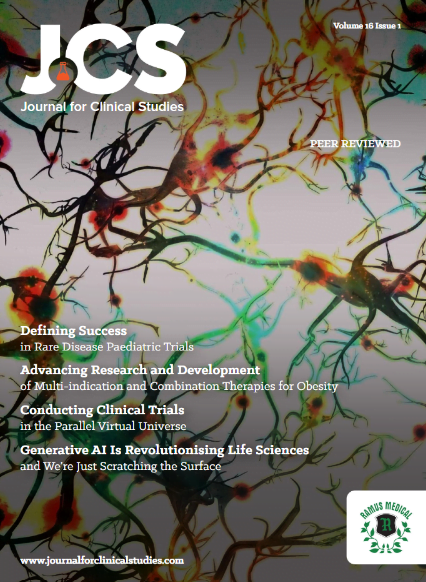Welsh rugby player Gareth Thomas knows what it feels like to be stigmatized. First, when he came out as gay more than 10 years ago, and more recently after he revealed his HIV-positive status under media pressure.
But now, Thomas is speaking out against the stigma surrounding HIV, for himself and others, as the spokesman in an awareness campaign from ViiV Healthcare, GlaxoSmithKline’s HIV-focused unit. The U.K. effort, called “Tackle HIV”—with a nod to Thomas’ former rugby career—seeks to educate people and end enduring myths around the virus.
“HIV is still misunderstood, and because of that stigma still exists,” Thomas says in an online video. “I am determined to change this … Science and medicine are so advanced, but public awareness and attitudes lag behind.”
How far behind? Generations, so it seems, according to new survey data uncovered in a pre-launch survey. ViiV queried 4,000 adults in the U.K., with the results revealing significant gaps in factual knowledge as well as continued widespread stigma.
For instance, fewer than 1 in 5 (19%) people knew that HIV-positive people who are receiving effective treatment—expressed scientifically as having undetectable viral loads—cannot pass HIV to their partners. On the stigma side, more than one-third (34%) of those surveyed said they would not play a contact sport if they knew one of their opponents had HIV.
Some of the stigma may harken back to memories of a scare-tactic national health campaign in the U.K. in the late ‘80s, said Helen McDowell, ViiV head of government affairs and global public health. At the center then was a TV ad featuring an exploding volcano and a tombstone carved with the acronym “AIDS.” The black-and-white commercial encouraged viewers to read the leaflet distributed to every household that bore the ominous title “AIDS: Don’t die of ignorance.”
As McDowell noted, while science and treatments have advanced well beyond those early epidemic years, public perception has been much slower to change.
Thanks to Thomas’ celebrity—and those of friends such as Prince Harry and musician Sir Elton John speaking out in encouragement—the campaign launch and media coverage gained traction quickly. The results so far include widespread prime-time news coverage, including three major network interviews with Thomas and more than a dozen radio interviews, along with newspaper articles in most of the national papers and more than 160 local and regional online news outlets, McDowell said.
Thomas is now at work on a podcast series as part of the continuing effort, interviewing others who have also faced stigma, including a Black soccer player and a lesbian sports figure. This summer, ViiV is planning viral fundraising events in partnership with the Terrance Higgins Trust and in the fall, more activities connected to sports through Thomas’ connections. ViiV plans to run another survey in nine months to see whether the effort has succeeded in changing perceptions.
“Stigma is not a new thing in HIV; unfortunately, it’s something that’s been there right from the beginning. The real difference here is having someone who’s a public figure and someone who’s publicly recognized and brings it to life in a very passionate and involved way. Collectively, that means we can have a bigger impact in tackling this issue,” McDowell said, adding that the company hopes to see “material shifts in attitudes as a result” of the campaign.
GSK treatments for HIV include ViiV’s portfolio of 13 approved drugs, with total revenues of €4.85 billion in 2019, plus a pipeline of other potential antiretroviral medicines. More recently, the company has begun a foray into PrEP for HIV, where it would compete with established rival Gilead Sciences. Its latest positive data for its injectable cabotegravir, dosed every two months, showed comparable results to Gilead’s daily oral pill.















